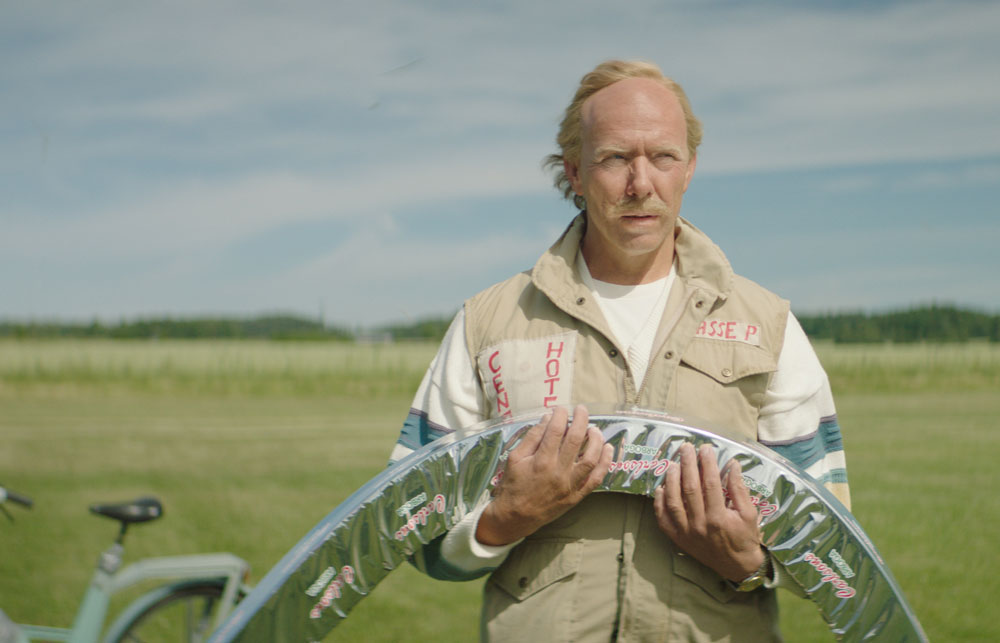It makes perfect sense that the titular dessert at the heart of “The Cake General” is as savory as it is sweet, with its lead character Hasse’s boldest decision after coming up with the idea to make a 500-meter monstrosity to wend its way around the small Swedish town of Koping to set a new Guinness World Record in 1985 being that it will be the uniquely Swedish confection of a sandwich cake in which one is as likely to get a bite of shrimp or dill in a mouthful as they are a bit of frosting or yellow pound cake. There’s as much salt as there is sugar in Filip Hammer and Fredrik Wikingsson’s comedy, the kind of engaging film that sets itself apart in how regional it is and it’s an unbelievable true story that one imagines might never have escaped where it’s set if Hammer hadn’t actually grown up in the area, which “won” a poll that branded it the “most boring town in Sweden.”
As envisioned by Hammer and Wikingsson, Koping is far livelier than its reputation, especially with a schemer like Hasse (Mikael Persbrandt) around. After the area became so economically depressed that Ikea made the rare move of closing shop there, the veteran of four marriages from 12 engagements and an inventor of shoes with a literal spring in their step cooked up the idea to change how Koping is reflected in the history books somehow, preferably with a positive connotation. A trip to the library reveals an attainable world record if only he can bake up 1640-foot cake and Hasse finds willing partners at the local Cafe Bivur, where the Sjomon siblings, Asa (Agnes Lindström Bolmgren) and Pelle (Joel Wallón), believe the cake is something their late mother would’ve appreciated, though of course few things go according to plan.
Hammer and Wikingsson are nearly as shameless as Hasse is when it comes to pulling at the heartstrings or getting a big laugh, but “The Cake General” has a story just crazy enough to allow such extremes, becoming a buoyant tale of outsiders who bring about a sense of community that takes a unique angle itself to become a rousing crowd pleaser. Having already penned a memoir recounting this same story, Hammer takes it upon himself to narrate the film and include the story of his idiosyncratic father, a beret-wearing art lover in an industrial town who thinks nothing of taking the 10-year-old Filip to see Pier Pasolini’s “Salo” at the local theater and tears up upon learning of Marc Chagall’s death as if it were a dear relative. While the narration, cranked up to full volume both sonically and tonally, can wear an audience out — it’s telling it largely disappears by the second half of the film — it’s just one of many clearly personal touches that help the film grow more resonant as it starts to blur the lines between drama and nonfiction footage the filmmakers captured of the real-life Hasse towards the end of his life.
A love letter to small towns and their eccentricities that can come to be embraced as strengths, “The Cake General” feels as big as the place Hasse sees in his head when no one else can, and although the sandwich cake, for as long as it was, remained well within the city limits of Koping, Hammer and Wikingsson’s cultural and emotional specificity bring it close enough to taste it.
“The Cake General” does not yet have U.S. distribution. It will play at the Seattle Film Festival once more at 3:15 pm on May 26th at Shoreline.




